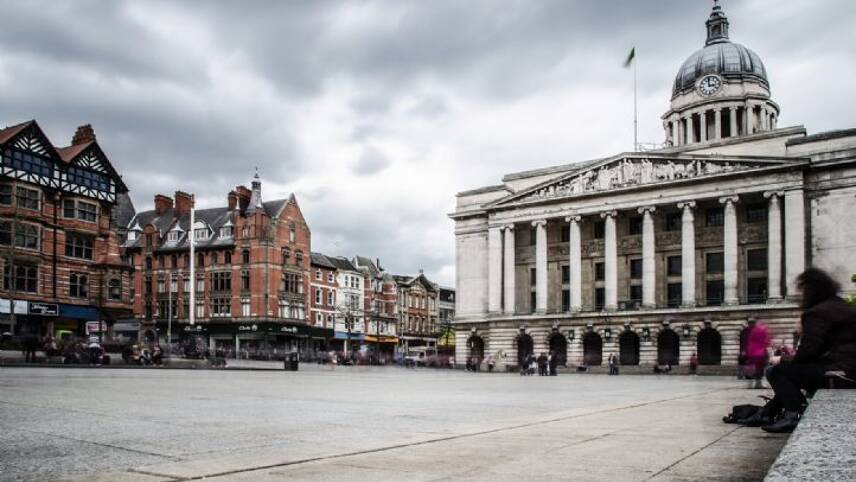Register for free and continue reading
Join our growing army of changemakers and get unlimited access to our premium content

Councils are struggling to implement their net-zero plans
Announced on Monday (21 January), the aim builds on the local authority’s pledge to ensure that at least one-fifth of energy procured across the area is sourced from low-carbon facilities by 2020 – a goal it claims it is “on track” to achieve.
The City Council took the decision to set the new 2028 target after surpassing its 2020 goal of reducing its overall carbon footprint by one-quarter, against a 2012 baseline, two years early. Overall, the local authority has helped to reduce the city’s carbon footprint by 39% since 2005.
This progress has been driven by a sweeping low-carbon strategy covering areas ranging from public transport and community-owned solar schemes, to retrofitting council buildings and housing with energy efficiency technologies.
To decarbonise transport, Nottingham City Council has invested in a fleet of hydrogen and biogas buses, a cycle hire scheme and bike storage hubs. It has additionally switched its entire tram network to 100% renewable power and introduced a levy for residents driving their cars to work, with all funds raised through the charge being ring-fenced for public transport projects.
Elsewhere, the local authority has retrofitted 400 council properties with energy efficiency technologies and subsidised the installation of solar panels at 4,500 domestic properties – both schemes it will scale up as it strives to achieve carbon neutrality.
“We have been making good progress for a long time, but it is incumbent on us to do more,” Nottingham City Council’s energy and environment lead Sally Longford said.
“We need a shift in the way we produce and use energy, more sustainable management of waste and ways to travel and to look at things like shortening supply chains by buying goods and services locally.
“We are also looking at a range of schemes that involve innovative technology, such as installing large batteries that can store solar energy – initially at council premises but also exploring this for domestic properties too.”
To ensure local people are engaged with its sustainability strategy, the local authority is currently developing a communications and behaviour change scheme for residents, Cllr Longford added.
Future-proof cities
The announcement from Nottingham City Council comes at a time when the city is facing ever-increasing climate challenges, with more than 10,000 buildings in the area currently at risk of flooding.
To help mitigate this risk – and those relating to heatwaves, droughts and air pollution – the city agreed in 2015 to act as a test-bed for smart city technologies for the EU – a move which has spurred it to use innovative technologies like district heating and ‘smart’ trams to tackle sustainability issues concerning transport, energy and ICT.
Once this £5m pilot project comes to an end in 2020, the EU will analyse the city’s progress before determining which of its energy and transport measures could be replicated across the bloc.
Several other UK cities have adopted similar ‘smart’ technologies at scale in recent times, including London, which plays host to extensive Internet of Things (IoT) and electric vehicle (EV) networks, as well as emerging innovations like CityTrees and ‘smart’ lampposts. The city is currently striving to achieve carbon neutrality by 2050, as part of Mayor Sadiq Khan’s London Plan.
Elsewhere, Liverpool City Council recently unveiled plans to offset more carbon than the city emits by using blockchain technology to purchase carbon credits. The local authority has forged a partnership with the Poseidon Foundation in a bid to offset 110% of the carbon impact of all goods and services offered within the city by 2020.
Sarah George


Electric and Biomethane buses not hydrogen.